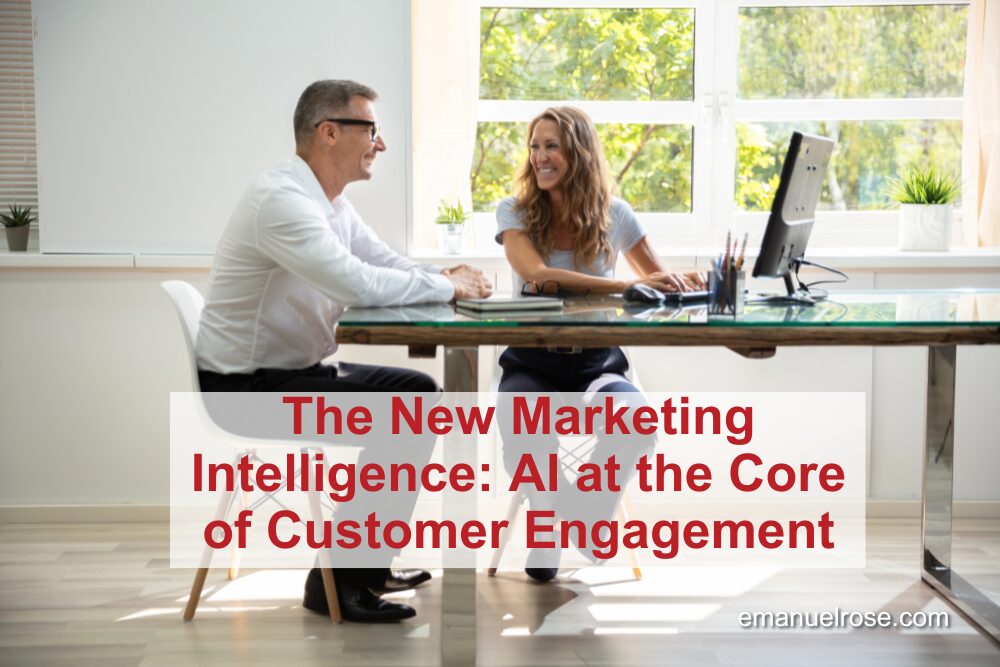As businesses navigate the complexities of the digital revolution, integrating artificial intelligence into marketing strategies has become a critical focus. The convergence of AI technology and marketing methodologies provides unique opportunities for companies to innovate and enhance their competitive positioning. This exploration delves into the profound impacts of AI on marketing practices, demonstrating how organizations can harness these technologies to achieve significant growth.
The Role of AI in Modern Marketing
As we reflect on the technological advancements that have shaped the digital realm, artificial intelligence stands out as a catalyst for transformation. AI enables marketers to engage customers in unprecedented ways, thanks to its ability to process vast amounts of data and extract actionable insights. This capability facilitates a deeper understanding of consumer behaviors, allowing businesses to tailor their messages to effectively meet customer preferences and expectations.
The shift from generalized marketing tactics to more personalized, data-driven strategies is increasingly evident. AI equips businesses with the tools to craft tailored communications that resonate with specific customer segments, fostering stronger relationships and greater brand loyalty. By capitalizing on AI’s sophisticated infrastructure, marketers are better positioned to engage audiences and drive results.
AI’s Analytical Mastery for Enhanced Insights
One of AI’s most significant contributions to the marketing sector is its unparalleled ability to analyze complex datasets rapidly and accurately. These analytical capabilities enable marketers to hone their strategies, optimize customer interactions, and refine campaign effectiveness. From personalized email campaigns to dynamic social media content creation, AI provides the resources necessary for marketers to elevate their efforts and resonate with target audiences.
AI’s impact is also profound in other sectors, such as healthcare, where it enhances patient experiences through tailored communication. AI can craft personalized medical advice by analyzing interactions between healthcare providers and patients, leading to improved patient outcomes and satisfaction.

Security and Ethical Challenges
The embrace of AI technologies brings crucial considerations regarding data privacy and ethical responsibilities. Businesses must uphold stringent data protection standards while utilizing AI to avoid potential breaches and ensure compliance with regulations. The moral implications of AI use necessitate a balanced approach, where the optimistic capabilities of AI are aligned with responsible and ethical business practices.
Navigating AI’s Challenges
Although AI’s potential in marketing is remarkable, its implementation is not without obstacles. The efficacy of AI outputs largely depends on the precision of its input prompts, requiring skillful crafting to yield meaningful results. The risk of digital fragmentation and the need for careful oversight must be addressed. Companies must balance AI’s benefits with effective human governance to minimize risks and maximize advantages.
Strategic Integration of AI for Long-term Success
To realize AI’s full benefits, organizations must integrate these technologies thoughtfully, aligning them with overall strategic goals. Crafting intelligent prompts and continuously refining AI outputs based on feedback is essential for maximizing relevance and impact. Businesses can reclaim valuable time for strategic planning and creative innovation by strategically leveraging AI capabilities, sustaining their competitive advantage.


Vision for the Future of Marketing
In conclusion, artificial intelligence offers transformative potential for marketing, and its intelligent application is where true value lies. Marketers must engage in a cycle of continuous improvement, adapting strategies to meet evolving business needs and consumer expectations. Embracing a forward-thinking approach is essential for companies looking to harness AI’s capabilities for sustainable growth and a competitive edge.
By integrating AI tools into marketing practices, businesses not only set themselves up for immediate success but also position themselves for future advancements. Companies that commit to thoughtful AI integration will thrive amidst digital uncertainties and achieve sustained success through innovation, improved customer engagement, and strategic excellence.
We appreciate Alec Crawford’s insights on the transformative role of AI in marketing. His perspective highlights how strategic AI integration is key to staying competitive and driving meaningful engagement.
Get to know Alec Crawford: linkedin.com/in/aleccrawford
Get to Alec Crawford’s company: aicrisk.com
Watch the Marketing in the Age of AI podcast featuring Alec Crawford: youtu.be/I-8ihoQDpiM

